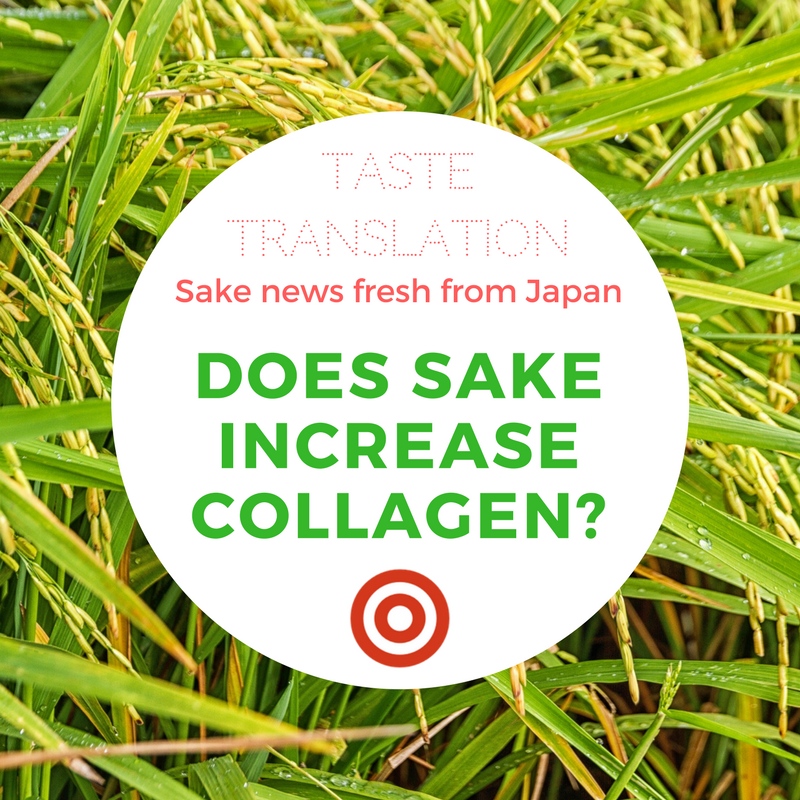
University Journal Online (Japanese) reports that joint research by the Applied Bioscience Department, College of Bioscience and Chemistry, Kanazawa Institute of Technology (KIT) and a research group at Syata Brewery have shown for the first time that an umami compound called ethyl D-glucoside (α-EG) found in Japanese sake can increase collagen in the skin when drunk or applied.
Kenji Ozeki and his team previously found that α-EG was able to retain moisture in cultured cells, and started joint research with the Syata Brewery research group in March 2014 to acquire more scientific proof of the substance’s effects in order to develop cosmetic products. The report states that they used ultrasonic dermal imaging in world-first human experiments with drinking sake and applying it to the skin. Dermal collagen was reported to be increased in both experiments, with the effects particularly pronounced in older women.
Plentiful consumption of sake has long been associated with smooth, resilient skin in brewers, brewery workers and rikishi sumo wrestlers. Syara’s research group planned to release a “skincare sake” junmai with three times the normal levels of α-EG (1.7%) alongside a junmai hand cream (α-EG 0.1%) on 1 October, Sake Day.
Good news for breweries selling sake lees-based cosmetic products, or sake high in α-EG? I wouldn’t run out to buy anything just yet. The report was lacking from a scientific perspective – there were no further details of what level of collagen increase was seen, what quantity of what sake was administered how often, where on the skin the tests were carried out, controls to check the results, or even a statement of how many subjects took part. There is also a potential conflict of interest as this was joint research with a commercial group developing a related product. Stay tuned and see if there’s a report in a scientific journal…
Links
- Original article (Japanese, University Journal Online, 21 September 2017)
[bctt tweet=”Does sake increase collagen? The science says…” username=”tastetrans”]